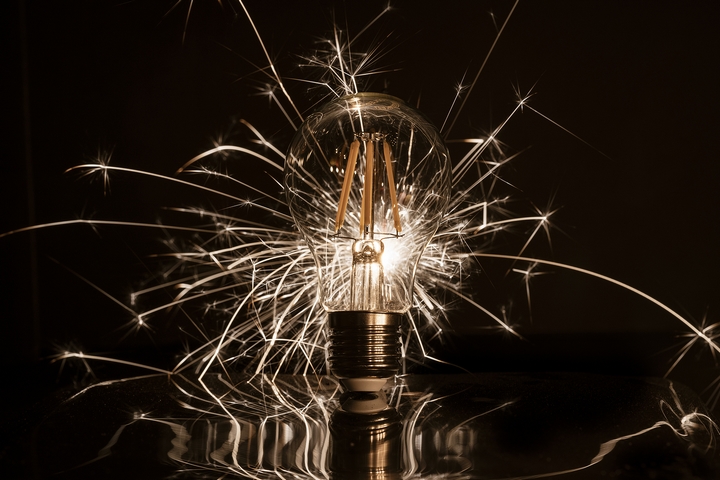
Have you ever experienced an exploding lightbulb? When a lightbulb explodes, you may be concerned about cleaning up all those tiny pieces of fine, shattered glass. Make sure to clear the room of both people and animals. If possible, open windows or turn on ventilation to air out the space. There is gas within a lightbulb that can be harmful. It is also important to turn off the central air conditioning or heating, if you’re using it.
Scoop up as much of the glass as possible with something stiff like a thin piece of cardboard or posterboard paper. Use something sticky, like duct tape, to get remaining small pieces out of the carpet or off of the floor. It is highly recommended that you avoid vacuuming unless absolutely necessary because of the possibility to spread more toxins through the air.
Once you’ve picked up as many of the shards, dust, and pieces of the lightbulb as possible, seal them in a container and take that outside. Contact your local government to find out about proper disposal.
An exploding lightbulb happens more frequently around the house than you might think. Have you ever wondered why it happens? There are several reasons why lightbulbs will explode.
1. Incorrect lightbulb wattage
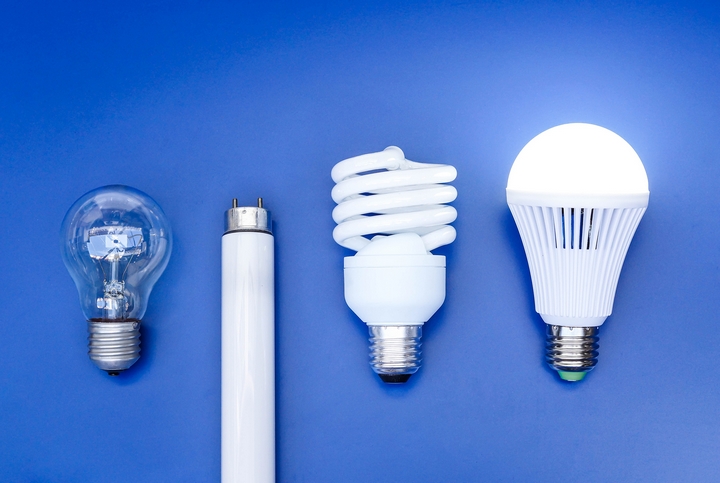
An incorrect bulb wattage is one of the most common reasons on why light bulbs explode. Lightbulbs come with different wattages, which are intended to be used in specific fixtures. Popping a lightbulb into a fixture with the incorrect wattage can cause it to explode.
If you’re not sure about your lightbulb wattage, if you’re having a lot of lightbulb explosions, or if you have any other questions about your lighting, contact an electrician. The Toronto electricians will be able to help you to diagnose and fix any electrical issues in your home, ensuring it is safe for you and your family.
How to avoid inaccurate lightbulbs
Usually there is a small sticker on the fixture that gives information about the specific wattage that the fixture has been designed for. Read that and ensure that the bulb you install matches what the label says. Alternatively, just use a low-wattage lightbulb – the exploding typically only happens when the wattage of the lightbulb is too high for the fixture.
2. Oil on the surface
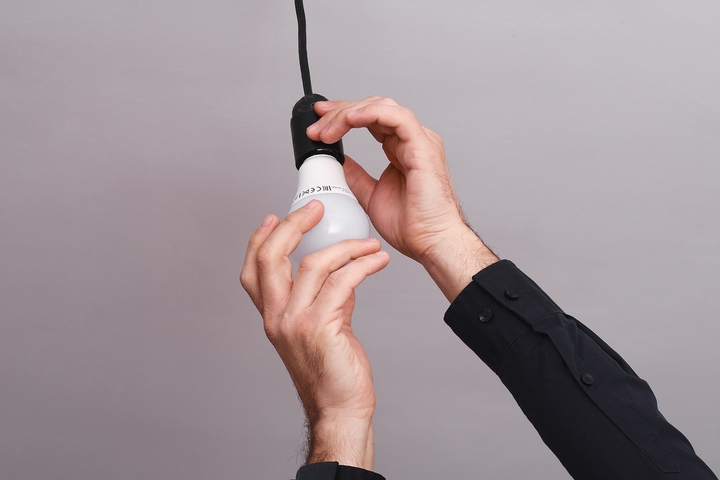
Did you know that your skin (and, for that matter, everyone’s skin) produces natural oils that rub off on virtually everything you touch? These oils can get really hot when the lightbulb is on, and cause it to crack and eventually explode. This is most common with halogen lightbulbs.
How to avoid oily lightbulbs
There are a couple of ways to ensure your natural skin oil doesn’t interact with the lightbulb. One way is to thoroughly wash and dry your hands just before handling the lightbulb. Another way is to wear gloves whenever handling a lightbulb.
3. Bad connection
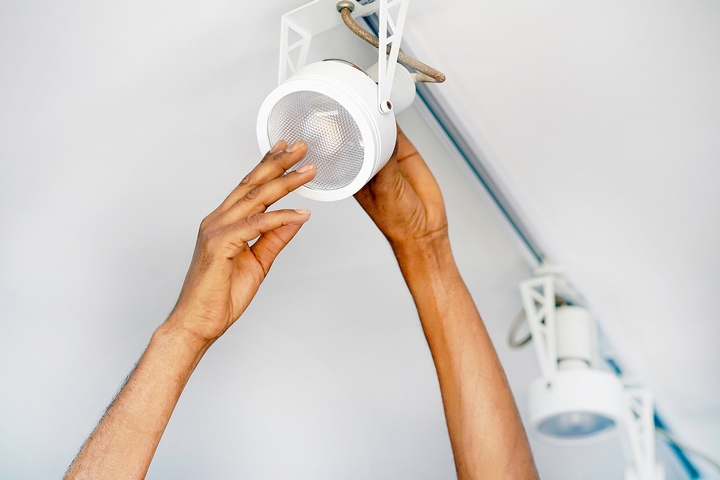
When the connection between the bulb and the socket is incomplete, it forces the electricity to essentially jump from one side to the other. Where usually the electricity would flow seamlessly, this jump makes the connection more unstable, releasing excess heat into the space that has been left in between the two pieces. That excess heat is what can eventually cause the bulb to shatter.
How to avoid bad lightbulbs
Tighten your bulbs into place so that they don’t jiggle. The bulb should be secure, but not overtightened. If you try to put the bulb too tightly into place, you could shatter it in your hand. Aim for somewhere in between.
4. Insufficient insulation
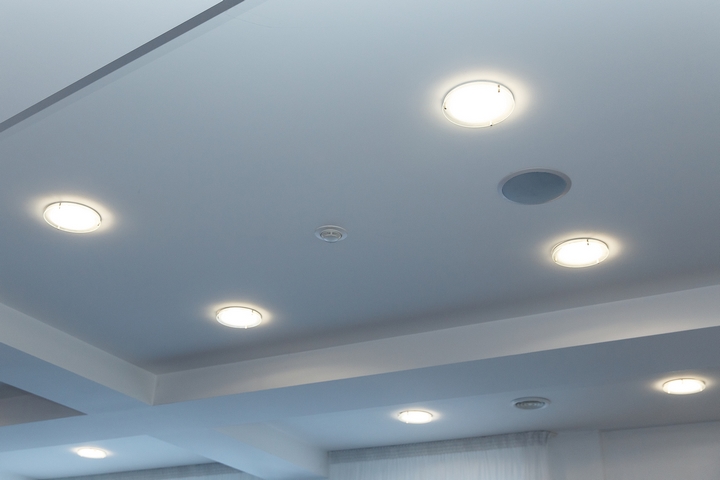
All that electricity and energy in the lightbulb creates heat. If the manufacturer doesn’t include sufficient insultation at the base of the bulb, then the base melts. When this occurs, it can create a pressure imbalance in the lightbulb due to gas leaking out of it. Ultimately, this pressure imbalance is what can cause the lightbulb to shatter.
How to avoid insufficient lightbulbs
This issue is most common in lightbulbs from cheaper manufacturers trying to save money in production. It’s impossible to visibly see if your lightbulb has sufficient insulation, so opting for popular companies with good reputations will help ensure you’re getting a good quality product.
5. Power surge
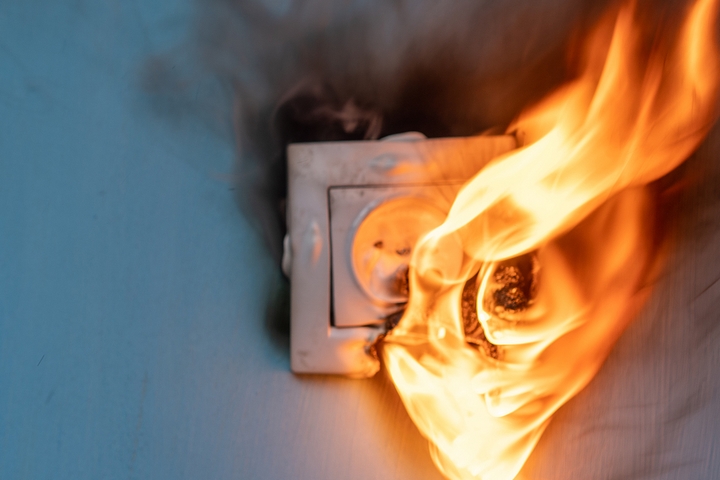
A power surge is a sudden increase of the power being delivered into your home. Often this could cause the lights to flicker or even stop working, but it can also cause them to explode if the electricity surge ignites the gas inside of the lightbulb.
How to avoid power surges
There are two key methods in the attempt to avoid power surges: maintaining the wiring in your home, and installing whole-home surge protectors. With these two methods, you can significantly decrease the chances that you will experience a power surge in your home. Power surges are also much more common during storms, so turning off items that use electricity can help decrease the chances of a surge.
